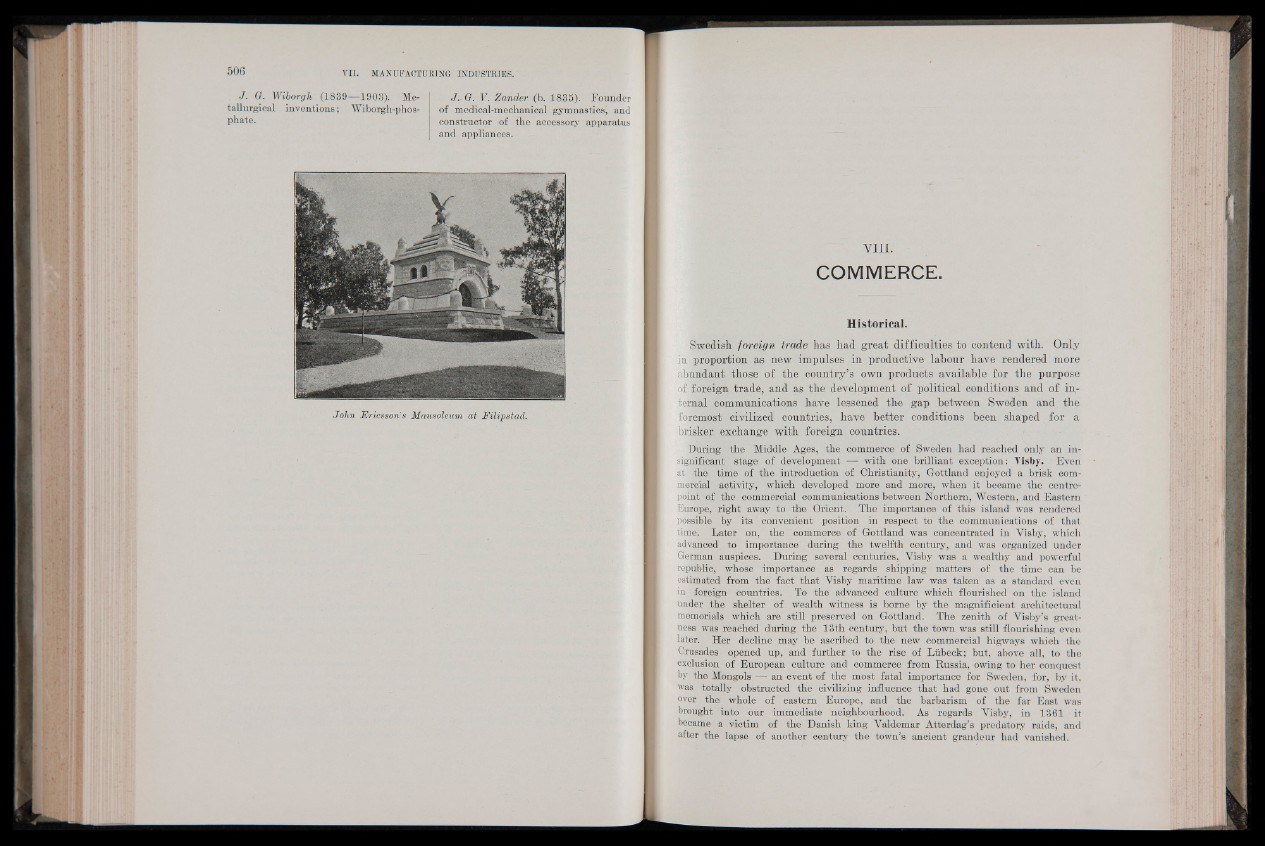
J. 0 . Wiborgh (1839—1903). Metallurgical
inventions; Wiborgh-phos-
phate.
J. O. V. Zander (b. 1835). Founder
of medical-mechanical gymnastics, and
constructor of the accessory apparatus
and appliances.
John Ericsson's Mausoleum at Filipstad.
Yin.
COMMERCE.
Historical.
Swedish, foreign trade has had great difficulties to contend with. Only
in proportion as new impulses in productive labour have rendered more
abtindant those of the country’s own products available for the purpose
of foreign trade, and as the development of political conditions and of internal
communications have lessened the gap between Sweden and the
foremost civilized countries, have better conditions been shaped for a
brisker exchange with foreign countries.
During the Middle Ages, the commerce of Sweden had reached only an insignificant
stage of development — with one brilliant exception: Visby. Even
at the time, of the introduction of Christianity, Gottland enjoyed a brisk commercial
activity, which developed more and more, when it became the centre-
point of the commercial communications between Northern, Western, and Eastern
Europe, right away to the Orient. The importance of this island was rendered
possible by its convenient position in respect to the communications of that
time. Later on, the “commerce of Gottland was concentrated in Visby, which
advanced to importance during the twelfth century, and was organized under
German auspices. During several centuries, Visby was a wealthy and powerful
republic, whose importance as regards shipping matters of the time can be
estimated from the fact that Visby maritime law was taken as a standard even
in foreign countries. To the advanced culture which flourished on the island
under the shelter of wealth witness is borne by the magnifiaient architectural
memorials which are still preserved on Gottland. The zenith of Visby’s greatness
was reached during the 13th century, but the town was still flourishing even
later. Her decline may be ascribed to the new commercial higways which the
Crusades opened up,: and further to the rise of Lübeck; but, above all, to the
exclusion of European culture and commerce from Russia, owing to her conquest
by the Mongols — an event of the most fatal importance for Sweden, for, by it,
was totally obstructed the civilizing influence that had gone out from Sweden
over the whole of eastern Europe, and the barbarism of the far East was
brought into our immediate neighbourhood. As regards Visby, in 1361 it
became a victim of the Danish king Valdemar Atterdag’s predatory raids, and
after the lapse of another century the town’s ancient grandeur had vanished.